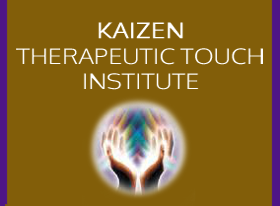When someone you love is dying….
 This can be time of great sorrow and anguish or a time filled with peace, harmony and good will. Dying is both simple and complex – a process that often engages not only the one who is dying, but members of their family, caregivers, healthcare and hospice support team. It takes energy to die…to let go and surrender to a process that, like birth, is natural to the human experience. We all die! Everything living must die. Accepting this fact, can elicit an enormous shift in how we perceive and experience the dying process. The impact of the loss we anticipate may be experienced as anticipatory grief, if we are aware of what it is we are experiencing, we may find a meaningful response to the situation…that allows us to be present to support the one who is dying, rather than be consumed by our own overwhelming sense of grief.
This can be time of great sorrow and anguish or a time filled with peace, harmony and good will. Dying is both simple and complex – a process that often engages not only the one who is dying, but members of their family, caregivers, healthcare and hospice support team. It takes energy to die…to let go and surrender to a process that, like birth, is natural to the human experience. We all die! Everything living must die. Accepting this fact, can elicit an enormous shift in how we perceive and experience the dying process. The impact of the loss we anticipate may be experienced as anticipatory grief, if we are aware of what it is we are experiencing, we may find a meaningful response to the situation…that allows us to be present to support the one who is dying, rather than be consumed by our own overwhelming sense of grief.
When someone you love has died…
Depending on your worldview and beliefs, you may perceive the death of a loved one, as final – a line, as if drawn in the sand. Whatever was shared and exchanged while living is now complete. The life that was lived is now a collection of memories and you, the survivor, are now faced with the difficult, but important, task to mourn – to experience whatever it is you experience and then give expression to your grief – your experience of loss.
The Experience of Grief
Every experience of loss or grief is unique! While the grieving process may offer a roadmap, your personal experience will be influenced by a variety of factors: your unique relationship to the person who died; the circumstances surrounding the death; your level of self-awareness, your support system, cultural practices, religious orientation and what is going on in your life at the moment.
Due to these factors and others, your grief will be unique. Bringing a non-judgemental, compassionate and mindful attention to the situation stabilizes emotions and mental states.
You may be surprised how the experience of grief can affect your entire being – heart, head, body and spirit. Emotions can be a powerful, destabilizing force – whether confusion, guilt, resentment or relief.
Grief can be Exhausting
Feelings of loss, sadness, guilt and confusion can leave you feeling depleted and compromise your ability to think clearly and make decisions. To practice self-care is to nurture yourself, eat healthfully, take daily exercise – preferably in nature and set time aside for spiritual practice – meditation, contemplation, self-expression that honours the experience you are currently living.
Be Mindful
Whatever your emotions, just notice what you are noticing in the moment and avoid judging yourself or negative self-talk on what you “should be feeling”. This only complicates the experience. Imagine thinking of your feelings as teachers – indicators that are providing you with information. To decipher the information your feelings are providing it may be helpful to call in the support of an Integrative Self Health Coach or death doula skilled in navigating the process and facilitating in-depth learning and personal growth through tough times.
Numbing Out – Fight, Flight or Freeze
The stress response of flight, fight or freeze in response to a loved one’s death, may leave you feeling dazed or numb. This can serve the purpose of providing you with “breathing space” for head and heart to come to terms and accept the reality of the situation. Staying in denial only serves to extend the grieving process.
While it’s great to share memories of the deceased, it’s best to avoid comparing your experience with others. Committing to be present and attentive to and giving yourself permission to experience whatever it is that you are experiencing aids the healing process.
Denying, repressing or ignoring your feelings won’t make them disappear but intensifies them. Healing is a process of letting go facilitated by the open sharing of perceptions, impressions, and feelings. Speaking directly and simply from your heart about what you are experiencing can make you feel better.
Caring friends and relatives who know how to listen deeply and compassionately without judging or offering commentary can provide a healing space. Finding friends or professionals who companion you on the journey through the experience of grief and mourning can be transformational and empowering.
To Mourn is to Express your Grief and Heal
To mourn is to lean into, feel and listen deeply to your inner being and then find the means for open, creative expression of your thoughts and feelings regarding the death and life lived of the person who has died. Love is a verb. Having loved someone who dies is to love that person still. The loss of your loved one transforms your life irrevocably…it will never be the same. Giving expression to the love you felt and still feel for the loved one, acknowledging and honouring their special qualities and contributions liberates and transforms grief into a process of healing.
While the feelings felt may be overwhelming, painful and therefore frightening, at first, over time and with a compassionate end of life coaching support they can bring light, beauty and peace to an otherwise dark and even despairing time.
Let Feelings Evoke Memories and Meaning
Let your faith guide you in giving expression to your loss. Give yourself permission to feel and share your feelings with like-minded people. Find a compassionate listener to talk openly with. A search for meaning in the course of events is a human drive. While some questions have answers, many do not. Death, like birth, is a mystery; questioning is a healthy questing for insight and spiritual guidance that can inform the memorial and ceremony design.
Memorial and Ceremony Design
Memories are legacies of lives lived. Sharing personal memories with loved ones – family and friends can elicit themes, qualities and characteristics, special gifts and highlights of the loved one. Creating a safe space and giving yourself and others permission to speak openly and share memories, laughing and crying together or alone can be very healing for all involved.
Funeral and memorial ceremonies are rituals and rites of passage that heal community by honouring the life of the loved one who has died.
Death as an Experience of Personal Growth
All healing is self-healing! Grief can be a powerful transformative, healing experience. In doing the inner work of grieving – allowing yourself to feel what it is you are feeling and giving expression to your experience – you are giving yourself permission to grow – to move towards a new sense of yourself, with a renewed commitment to live life fully to the best of your ability.
Contact us to enquire about our end of life coaching, Thanadoula and ceremony design services.





